Sometimes, people tend to simply think that "the victory of a certain party is more beneficial for cryptocurrency."
Author: YB
Translation: Deep Tide TechFlow
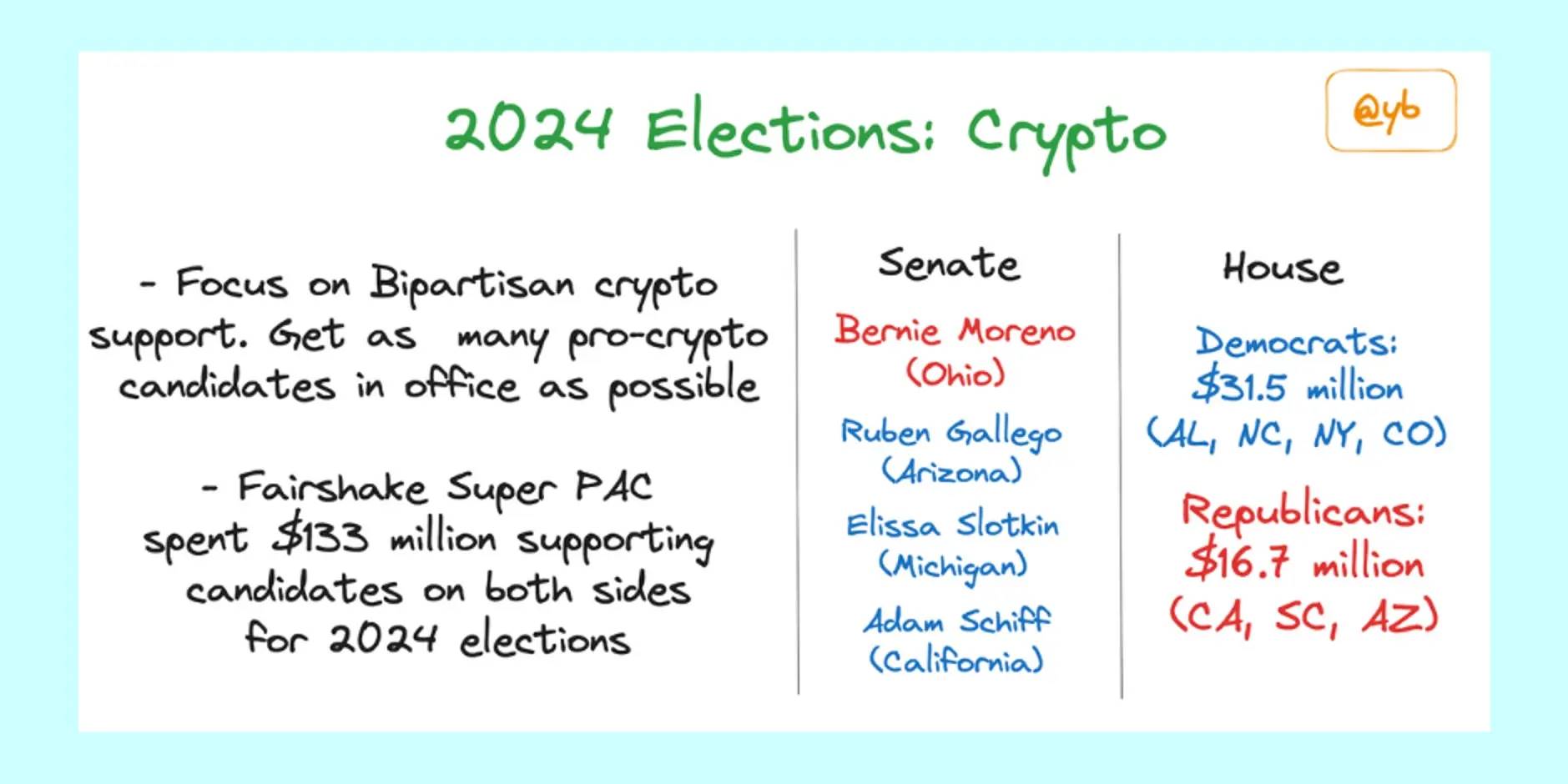
Happy Election Day!
Don't worry, today's post won't delve into anything on the blockchain.
This is a special day that comes every four years, where we can confidently put down our work and enjoy the various excitement on social media.
On Sunday, a friend asked me what I thought about the election's impact on cryptocurrency and technology.
I could only respond, "Uh, I saw someone on Twitter say that if Trump wins, the market might go up." But why? Is that true?
Honestly, I'm not quite sure. To be frank, I don't care much about it. Macroeconomic and political analysis is not my strong suit.
I've been in this field for five years, and short-term price fluctuations don't affect me much.
However! Yesterday, I took some time to learn about it. If you want to know what cryptocurrency-related matters to pay attention to on Election Day, I'm sharing some basic thoughts here.
Let's take a look.
Focus
Through my research, I found that this election's impact on cryptocurrency is significantly different from previous ones, as cryptocurrency has actually become an important topic of discussion among candidates.
Note: The candidates here also include those running for the House and Senate seats.
I think Coinbase may have somewhat exaggerated the importance of cryptocurrency in the election in its “State of Crypto” report. For example, while there are 52 million people holding digital assets, I don't believe cryptocurrency is a priority for most people's voting considerations.
However, as we saw from the 2020 election, the race can be very tight! In states like Georgia and Pennsylvania, the election results could even be decided by the last ten thousand votes.
This is the key point I see: even in swing states, if only 20% of cryptocurrency holders care about their investments, the influence of cryptocurrency policy may be greater than we expect. This is due to the design of the electoral system.
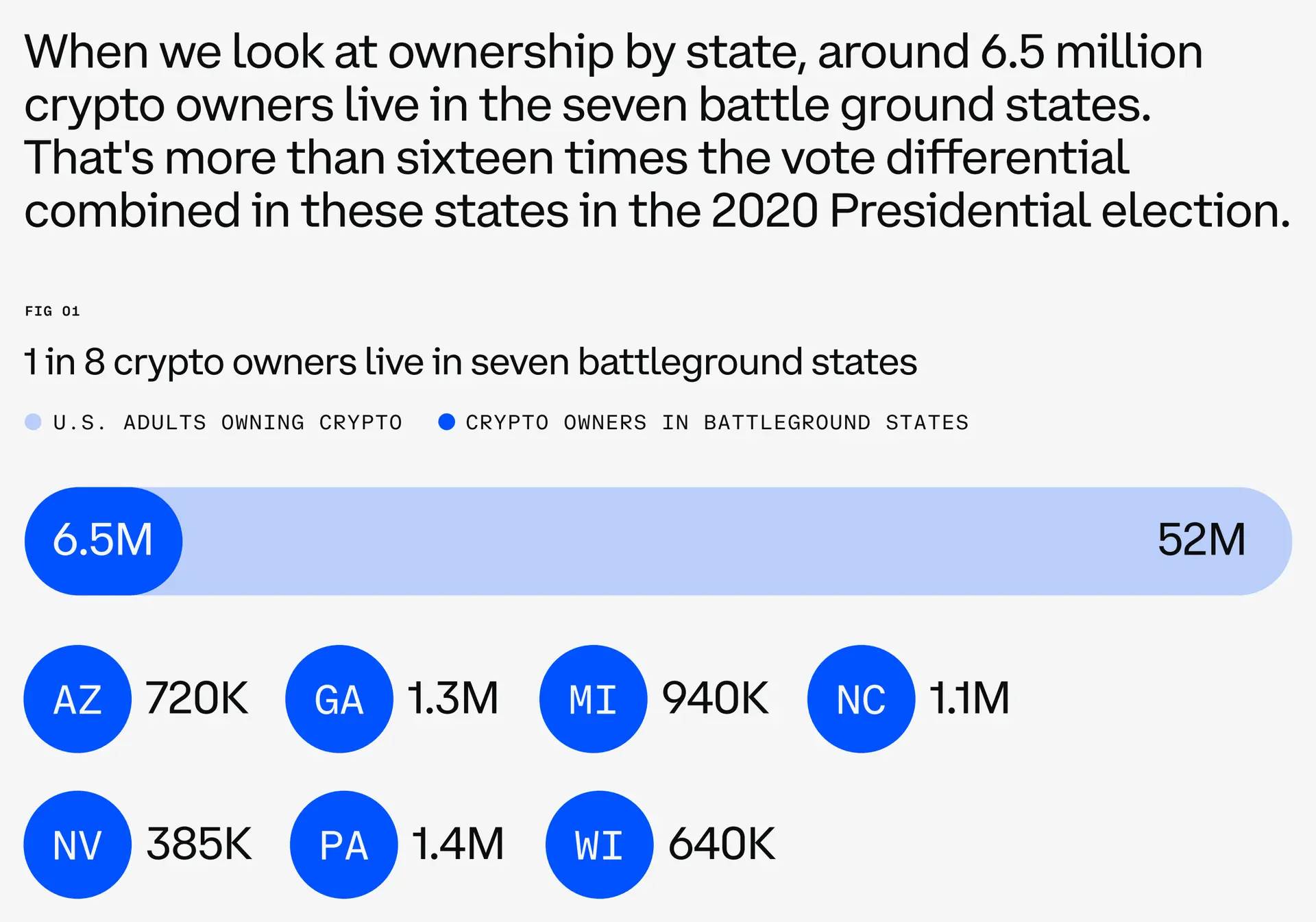
Almost all politicians running for office have been asked about their views on digital assets, blockchain technology, and stablecoin regulation.
This has also forced the media to mention the topic. Although it remains a foreign field for them (check out the CBS video below), they almost have to discuss cryptocurrency in some way.

Many presidential candidates have participated in tech podcasts like "Everyone Online" during this cycle. Even Trump was interviewed by Fraokh.
Clearly, the candidates are trying to attract the attention of cryptocurrency voters. While these promises have limited significance before they are truly implemented, cryptocurrency has become an important issue.
This makes me think, why has there been such a significant change in the past year?
Fairshake Super PAC
For friends outside the U.S., Political Action Committees (PACs) are organizations focused on specific issues that raise funds to influence election outcomes. These organizations either support candidates who align with their ideals or oppose those who do not.
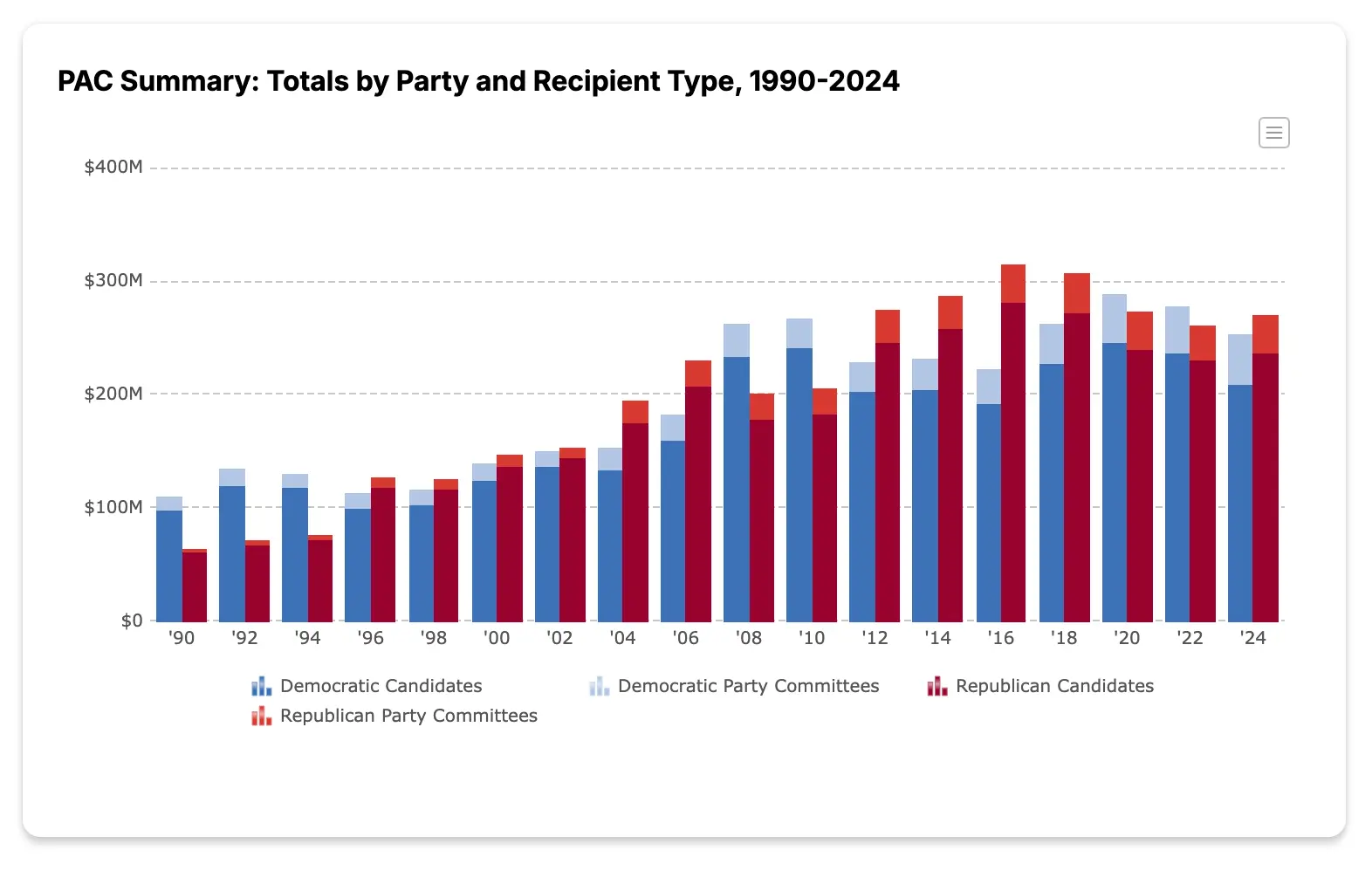
In the past year, many may have seen industry leaders like Chris Dixon and Brian Armstrong announce their funding for Fairshake PAC.
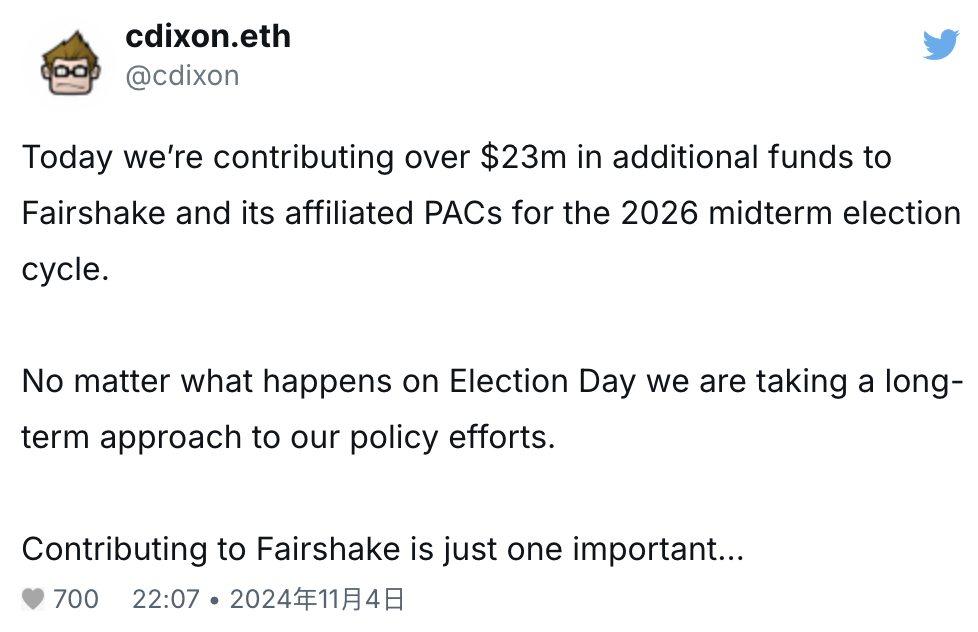
Since 2022, Fairshake has been funding candidates from both parties who support cryptocurrency. Their mission statement on the website is:
Fairshake supports those committed to making America the home of the next generation of internet innovators.
To fully develop an open blockchain economy in the U.S., it is crucial to provide blockchain innovators with the ability to develop networks under clearer regulatory and legal frameworks.
I had known about Fairshake for a long time but hadn't paid attention to their specific data. Yesterday, when I browsed the Open Secrets website, I was surprised to find the amount of funds Fairshake has raised.
They ranked sixth on the fundraising leaderboard, raising nearly $300 million.
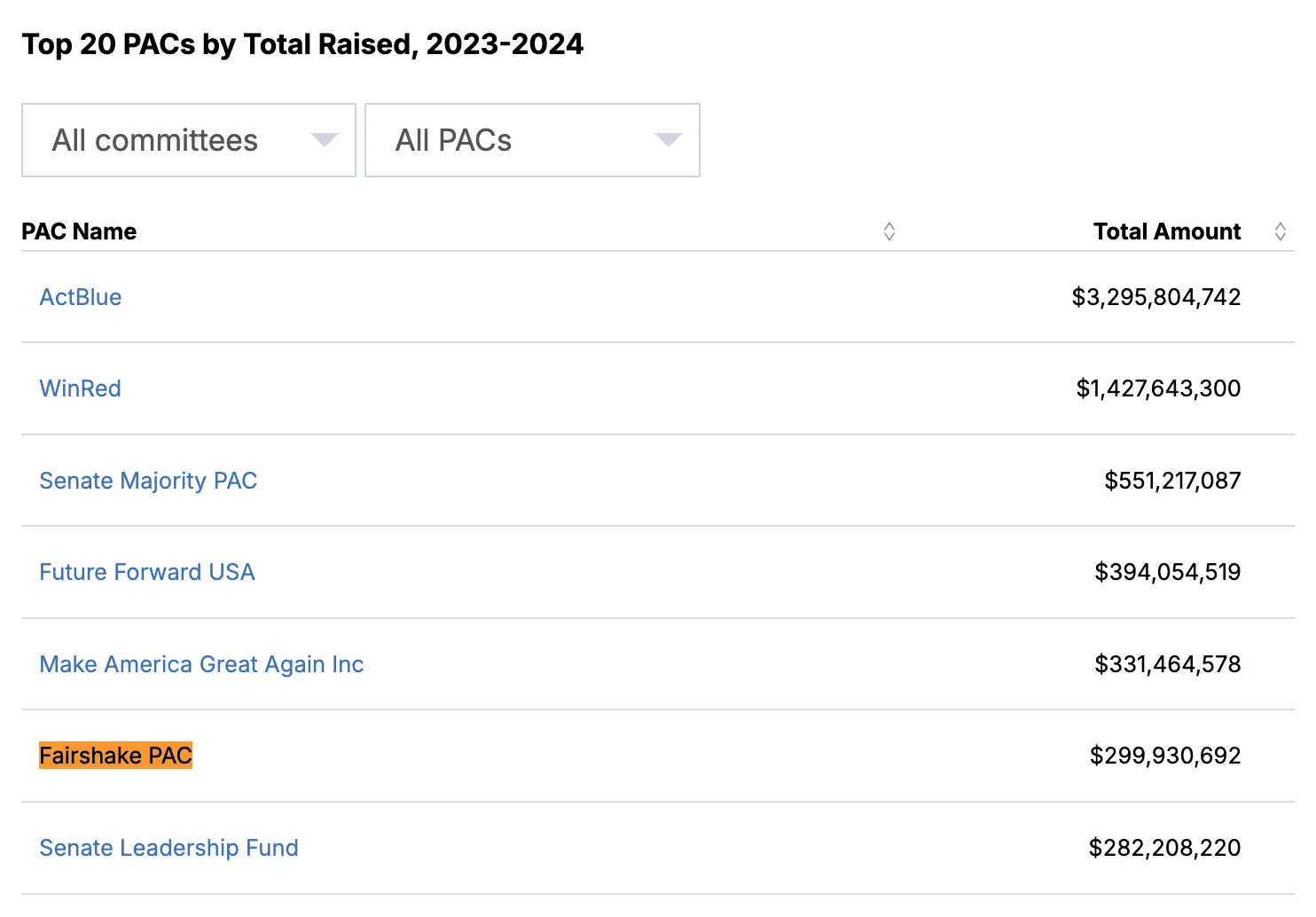
It is worth mentioning that Fairshake (independent) also collaborates with affiliated PACs like Defend American Jobs (conservative) and Protect Progress (liberal), so the funds raised are the sum of these organizations.
Here is the list of the top 15 donors, all familiar names to us:
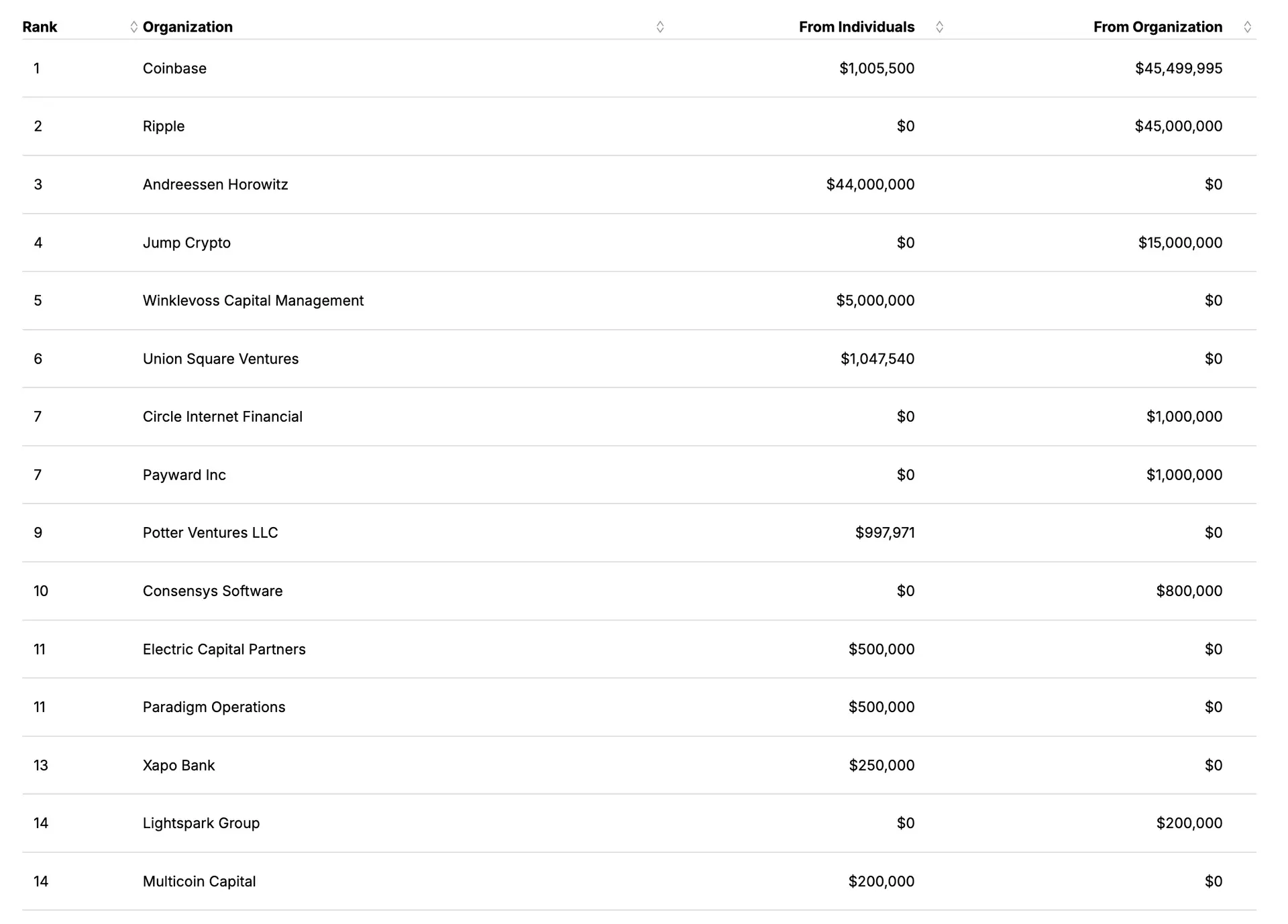
In the 2024 federal election cycle, the expenditures of various organizations are as follows:
Fairshake: $40,698,591
Defend American Jobs: $57,883,662
Protect Progress: $34,633,121
Total: $133,162,374.
Through this data, I realized yesterday that most people only focus on the opposition between Trump and Kamala on cryptocurrency policy, but what’s more interesting is Fairshake's efforts in important Senate and House races—they have supported candidates from both parties!
Promoting Candidates Who Support Cryptocurrency
This Politico article details all the candidates who have received funding from Fairshake. Below, I want to discuss a few notable candidates.
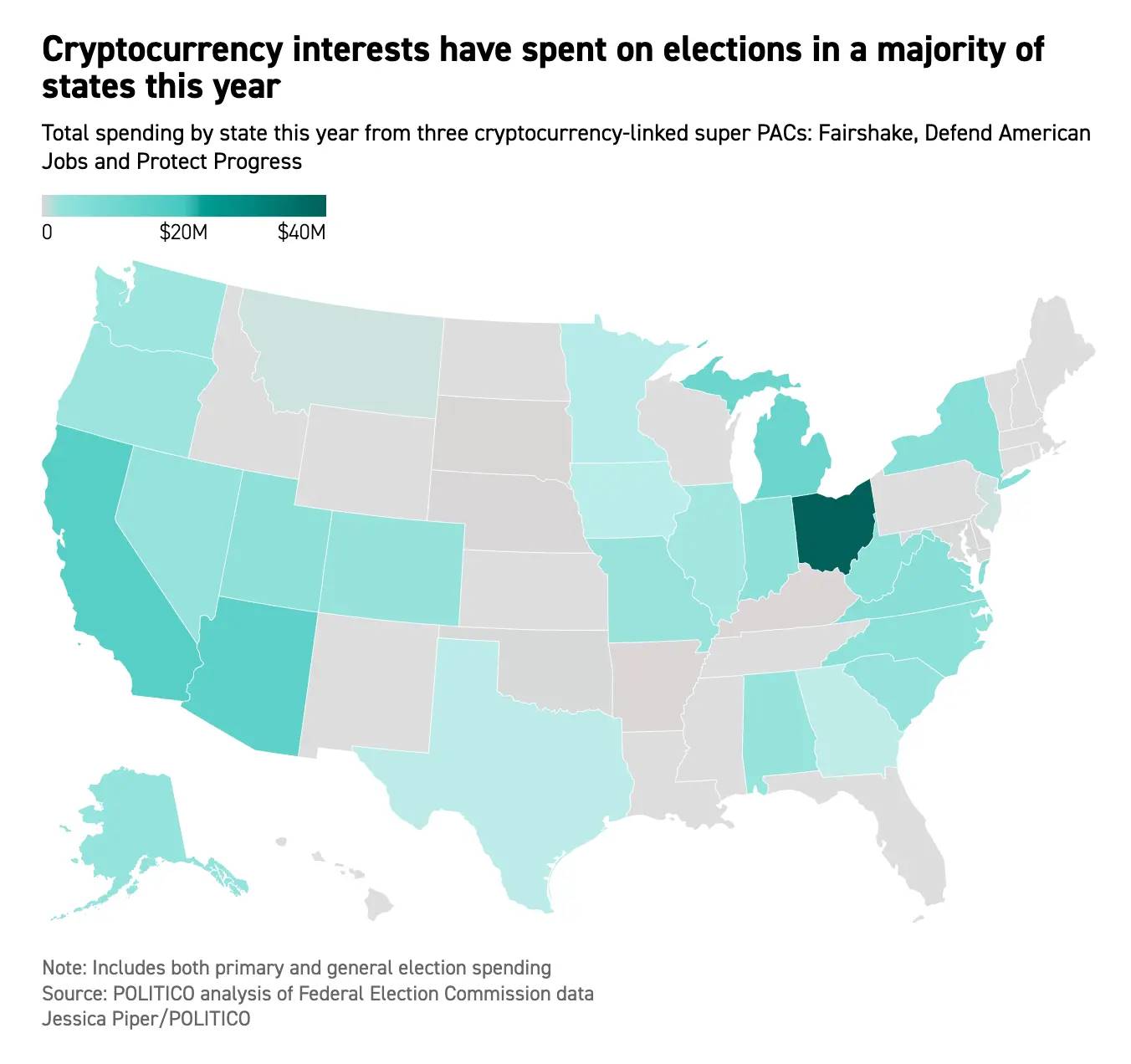
Senate
Ohio: Republican Bernie Moreno received $40.1 million in support for his Senate campaign in Ohio to challenge Democrat Sherrod Brown.
Arizona: Democratic Congressman Ruben Gallego received $10 million in support in Arizona to face Republican Kari Lake.
Michigan: Democratic Congressman Elissa Slotkin received $10 million in support in Michigan to defeat Republican Mike Rogers.
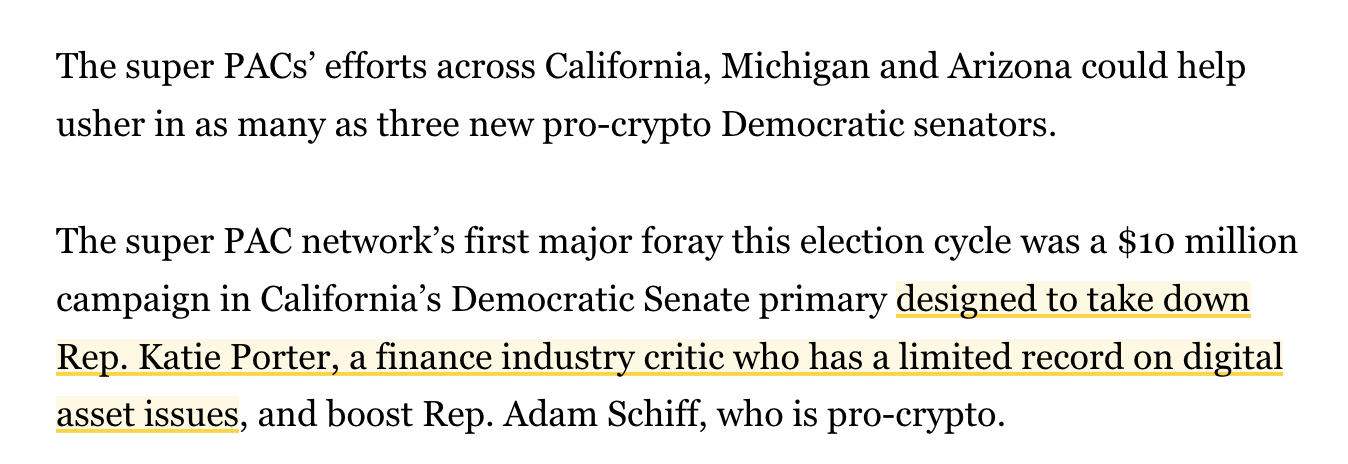
House
In the House, Fairshake is focusing on about 50 important campaigns nationwide.
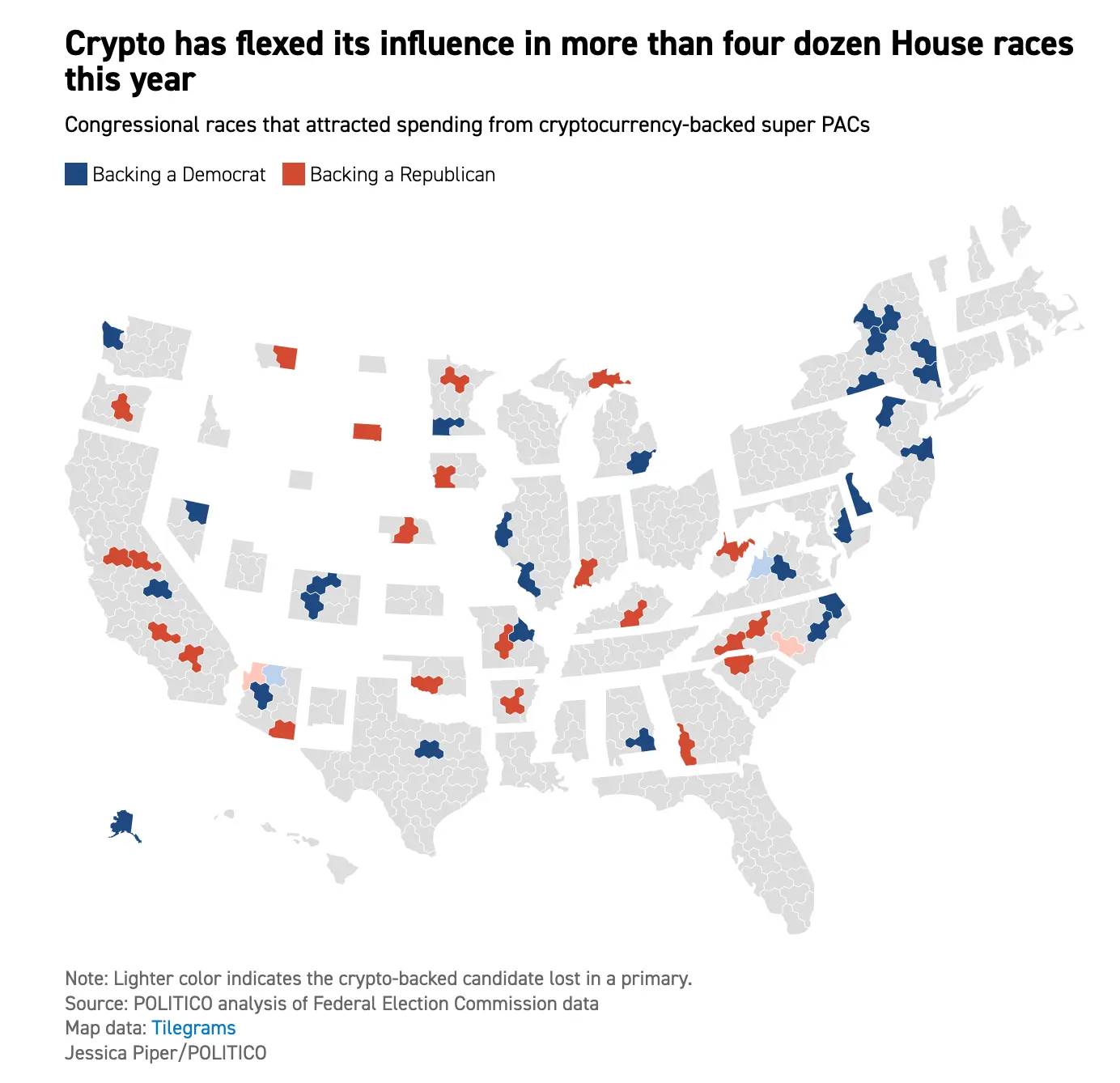
“We have noticed a broad bipartisan consensus on the importance of ‘viewing crypto and blockchain as a vital part of the future economy’… We will continue to invest resources in leaders from both parties in both chambers who are committed to taking real action and working with the industry to drive innovation, create jobs, and maintain America’s global leadership through responsible regulation.”
Fairshake announced it will invest $25 million in television advertising campaigns to support 18 House candidates from both parties.
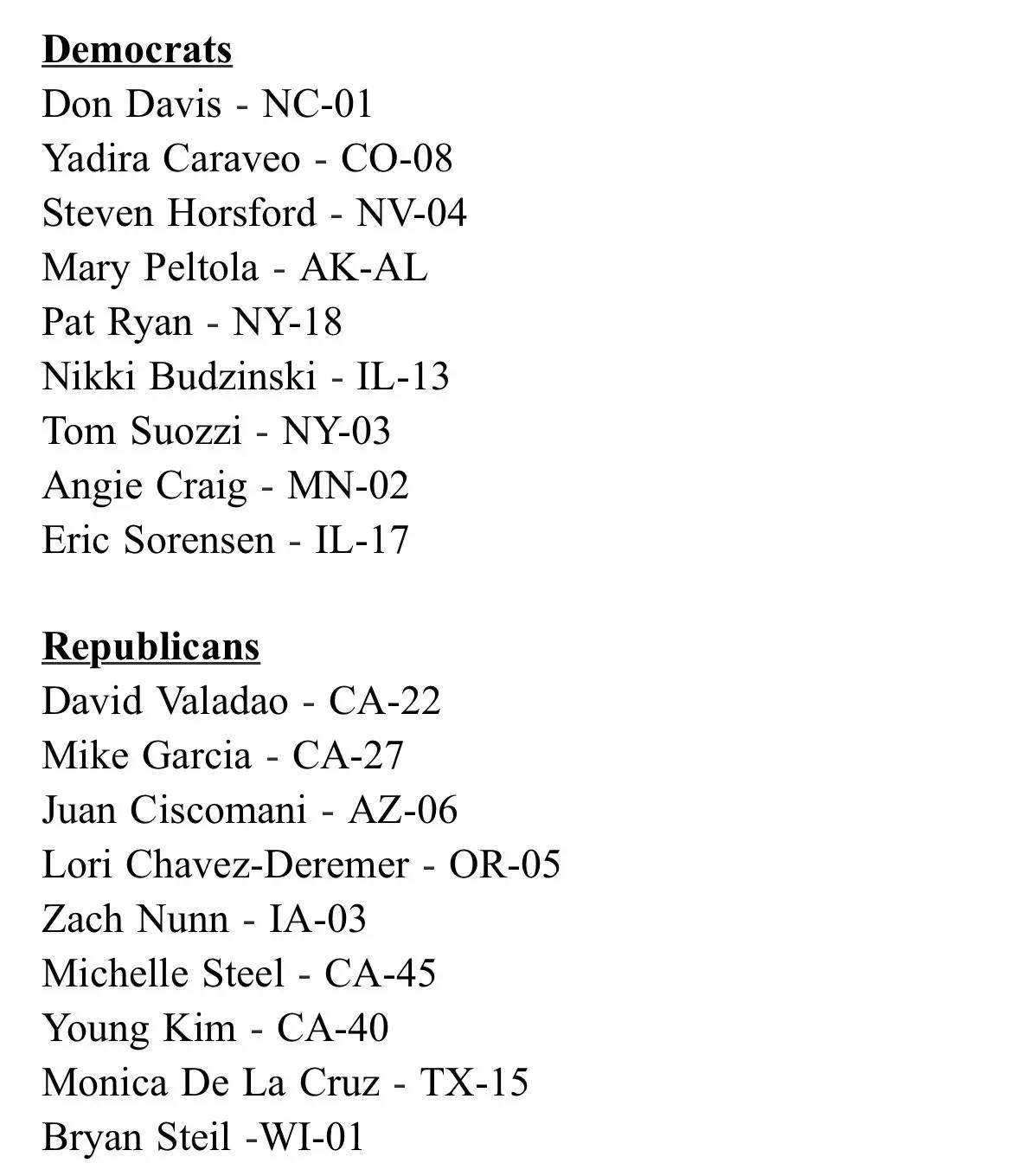
Sometimes, people tend to simply think that "the victory of a certain party is more beneficial for cryptocurrency." To some extent, this viewpoint makes sense, as holding a majority in Congress is indeed very important.
However, it is worth noting that the recently passed key cryptocurrency policy FIT 21 (Financial Innovation for the 21st Century) received bipartisan support in the House, including the votes of 71 Democratic representatives.
Every candidate supporting cryptocurrency elected today can not only drive meaningful change in the next two years (until the midterm elections) but also set the tone for future candidates' positions on digital asset issues.
That's all for today's sharing, see you next time!
免责声明:本文章仅代表作者个人观点,不代表本平台的立场和观点。本文章仅供信息分享,不构成对任何人的任何投资建议。用户与作者之间的任何争议,与本平台无关。如网页中刊载的文章或图片涉及侵权,请提供相关的权利证明和身份证明发送邮件到support@aicoin.com,本平台相关工作人员将会进行核查。




